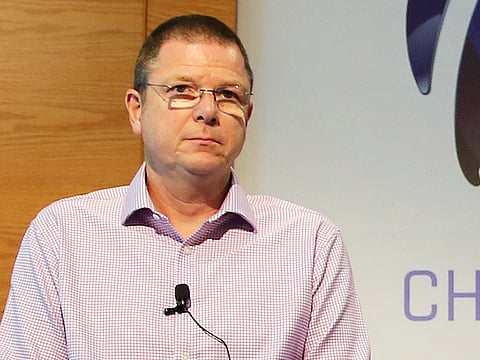ICC pushes Sri Lanka to make fixing ‘criminal’
World governing body hopes to persuade India as well, sources say

Dambulla, Sri Lanka: Match fixing could become a criminal offence in India and Sri Lanka following pressure by the International Cricket Council (ICC).
The ICC anti-corruption unit is in Sri Lanka to lobby the government as it investigates cases of corruption on the island.
Alex Marshall, the chairman of the unit, met the country’s prime minister and president last week. It is learnt that he is due for further meetings with government officials this month and politicians have offered more resources for fighting corruption as several serious investigations reach a crucial point.
Some of those are in Sri Lanka, another is in Hong Kong, where the ICC announced on Monday three players had been charged with 19 counts of breaching the anti-corruption code, including offences linked to a game against Scotland and at the 2016 World Twenty20 in India.
The ICC is hoping that by making match-fixing — and approaching players to throw games — criminal offences in Sri Lanka, it can bring greater powers of investigation to bear, and that potential prison sentences would deter wrongdoers. It hopes to have similar discussions with Indian officials and believes other countries will follow suit if Sri Lanka takes the first step.
Match-fixing is a criminal offence in Australia and South Africa under specific sports laws. In the United Kingdom, courts use the Bribery Act, but there is no criminal offence for match fixing anywhere in the sub-continent, so police support is not the same as the ICC would receive elsewhere.
With police help, the ICC believes it can make life difficult for match-fixers in other ways, such as examination of bank accounts, tax returns, visa status for overseas travel and freezing of assets.
The anti-corruption unit is also set to make more widespread use of the charge of failing to support an investigation, so if suspected match-fixers, either players or officials, do not hand over mobile phones or other computer records, they will face punishment and the shame of being associated and banned for involvement in corruption.
In a state of paralysis
Sri Lankan cricket is in a state of paralysis, with board elections on hold as three groups try to take over. An interim board was appointed by the ICC in February to run the game in the meantime.
Former president Thilanga Sumathipala is standing again but his application was opposed in court by a rival alleging he had links with bookmaking. His father is a bookmaker and he has admitted this.
In the meantime, the ICC is investigating fixing allegations in Sri Lanka and believes enlisting government help will make its job easier. It is believed the whole system needs cleaning up, with Sri Lanka domestic cricket seen as the vulnerable point, where match-fixers can get their claws into young players. With the Sri Lanka national team struggling, the negative publicity of any investigation, and potential subsequent public backlash, could force the government to look as if it is making a stand by passing anti-corruption legislation.
The ICC investigations in Sri Lanka are separate to the Al Jazeera documentary aired this year which alleged that the pitch for the first Test against England next month in Galle could be doctored.
A man, described as the groundsman, has been suspended by Sri Lanka Cricket based on evidence in the programme and England have been assured the pitch preparation will be closely monitored. They were briefed by anti-corruption unit officials on Sunday.
Marshall, the former chief constable of Hampshire, took over as chairman of the unit last year and has launched several investigations around the world as cricket looks to take on fixing and react to the threats spread by the springing up of Twenty20 leagues.
The ICC has long feared that players from associate nations are more susceptible to approaches from match-fixers and charged three from Hong Kong yesterday. Fast bowler Irfan Ahmad has been charged with nine offences. Hong Kong’s game against Scotland was one of the suspect games.
Ahmad was banned for two years for breaching the anti-corruption code in 2016. His brother, Nadeem Ahmad, who played against India in the Asia Cup last month, was charged with five offences covering the same time period, as was Haseeb Amjad.
— The Telegraph Group Limited, London 2018


